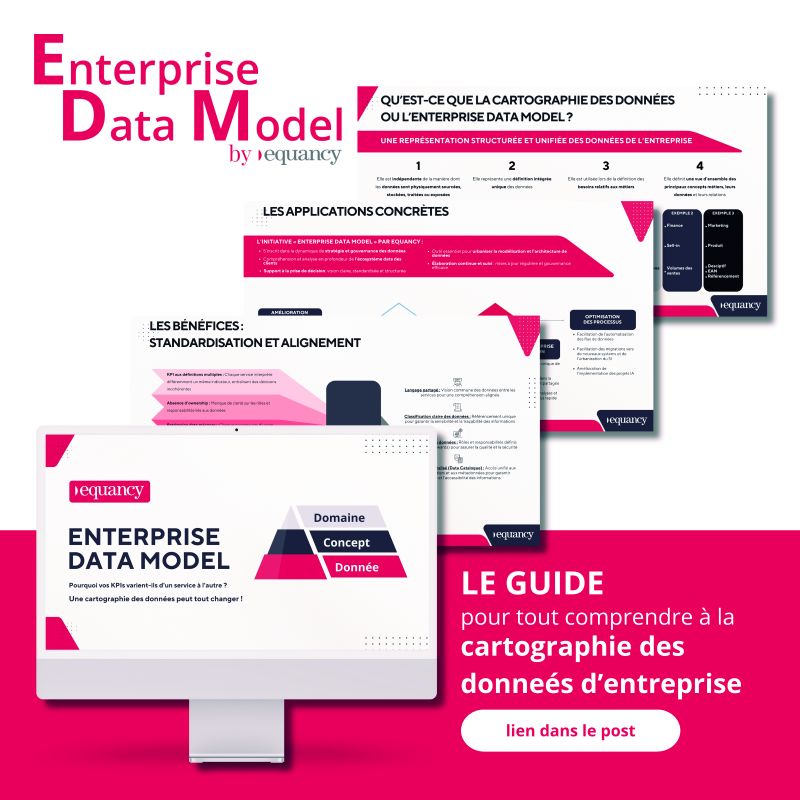Do you know the recipe for cookie-free data?
The protection of privacy has continued to evolve and strengthen. At the same time, the identification of users and their behavior on the Internet, under the pretext of facilitating and fluidifying the experience, tends towards ultra-personalization, leading to controversial data exchange.
Internet, this free service finally more expensive than expected for the Internet user.
Google's announcement to remove Chrome's third-party cookies has caused a lot of ink to flow, but this news is just the next logical step in Google's hegemonic rise to prominence.
However, legislators and citizens have not waited for the digital age to concern themselves with privacy protection. Already in 1974, Georges Pompidou wanted to launch the SAFARI project (Automated System for Administrative Files and Individuals Directory). This system planned to create a centralized database of the population, using the social security file as a common identifier for all administrative files. This project was withdrawn by the then Prime Minister Pierre Messmer in the face of a public outcry. He then created a commission called "Informatique et Liberté" (Information Technology and Freedom).
"Information technology must be at the service of every citizen", proclaimed the law of January 6, 1978. To this end, a National Commission for Data Processing and Liberties (CNIL) was set up.
It is 40 years later that the RGPD is born, after one of the biggest scandals in the digital world. The Facebook-Cambridge Analytica scandal, questions us on the possibility that today "every citizen is at the service of information technology", after personal data was used for private interests in the context of the election of Donald Trump.
The third party cookie contains residual personal information that allows third parties to continue to monitor the user's behavior.
The awareness of Internet users about the value of their data and the fact that it is not totally private has put the spotlight on cookies. As a reminder, a cookie is a text file saved on the computer when a user visits a web page. There are two main categories of cookies. Session cookies allow the website to identify the user through the pages, this feature is found in a shopping cart on an e-commerce site for example. Permanent cookies allow the site to personalize and optimize the customer experience, they remain active even after closing a session. Among permanent cookies, the third-party cookie contains residual personal information that allows third parties to continue to track user behavior. It is installed by previously visited sites for personalization or advertising purposes, and it is precisely the latter that is the subject of debate today.
Today, 70% of French people say they are more sensitive to data protection issues, and 47% of Internet users use an Ad Blocker.
Since the coming into force of the RGPD, sites have been required to obtain users' consent before storing their information or accessing information already stored. Today, 70% of French people say they are more sensitive to data protection issues (IFOP survey conducted in April 2019 on a sample of 1,000 people, representative of the French population aged 18 and over, using the quota method) and 47% of Internet users use an Ad Blocker (GlobalWebIndex).
On January 14, Google announced that it would give itself two years to eradicate third party cookies on its browser in order to respond to privatization and security issues. Apple's Safari (2017) and Mozilla Firefox have been ahead of the game by equipping themselves with anti-cookie filters.
This unbridled race between legislators to protect privacy and digital players (brands, software, agencies and consulting firms) to collect qualified data is leading the latter to rethink their activity.
The protection of privacy to the detriment of qualified data
You've probably already heard this famous quote: "If it's free, you're the product".
Indeed, when surfing on the Internet, the free service generally involves sharing data and information for the attention of advertisers. With the legislative evolution centered on the respect of data and privacy, it is therefore more and more difficult to collect so-called "clean" and exploitable data.
The balance of power is consolidating for the GAFA actors present in the daily lives of individuals, who will soon be the only ones to obtain massive customer data in an easy, legal and relevant way.
With Google's decision to make Chrome's third party cookies, which equip 6 out of 10 users, obsolete, and other browsers already engaged in this voice, data collection becomes more complex.
The balance of power is consolidating for the GAFA actors present in the daily life of individuals, who will soon be the only ones to obtain in an easy, legal and relevant way massive customer data.
It is still possible to retrieve data, but it is increasingly limited by Internet users refusing cookies on the site they consult or refusing any use of their data for promotional purposes.
For the last few months, we have measured that 40% of our customers are reluctant to share their personal information.
Approximately 20% of Internet users forbid the site to track their browsing for statistical purposes, which reduces the quality of the data and reduces the accuracy of certain variables such as the bounce rate. For the past few months, we have been measuring 40% of our customers who are reluctant to share their personal information.
The only way to have reliable data is therefore to explicitly collect the consent of the individual. The latter must still want to have targeted offers and content when browsing and trust the site he consults.
Towards a new cookie-less world
The digital advertising market is growing every year (+12% in 2019) and will reach 5,862 billion euros compared to 5,228 billion euros in 2018 (Observatoire de l'e-pub 2019).
More than ever, the recognition of Internet users is more than ever the stake of the actors of the web. Without the possibility of tracking Internet users via third-party cookies, it is essential for publishers to keep track of their proprietary data.
Publishers are starting to come together to offer "shared accounts" that allow a single user to be identified on multiple platforms. The competition will thus have to be erased with the profile of the good traceability of the Net surfers.
The PassMedia, developed under the supervision of the Geste (Gathering of Publishers), was deployed on January 21, 2020 within six sites: the JDD, Paris-Match, 20 Minutes, L'Equipe, Europe 1 and RTL. These sites now have a common identifier, which should enable them to increase from around 15% of logged-in users to 50% by 2021.
The metered paywall or hard paywall, which restrict almost all or all content for unlogged users, will be an effective solution for forcing them to connect and link to a unique ID when browsing.
Other alternatives are used by some actors to encourage Internet users to log in in order to follow their activity. The paywall is regularly used in order to obtain the user's ID. The paywall software, which consists in inciting the Internet user to log in or subscribe to read more than a certain number of articles per day, will no longer be usable without permanent cookies. Nevertheless, the metered paywall or the hard paywall, which restrict almost all or all of the content for unlogged Internet users, will be an effective solution for forcing the latter to connect and link to a unique ID during their browsing.
This trend towards identification could hinder the consultation of certain sites. Web players who absolutely want to track and identify their users risk seeing them abdicate and leave the site, at the cost of reliable and accurate data.
With their numerous platforms and services, Google and Facebook already have a good traceability of Internet users without using third party cookies. The other actors of the web have therefore every interest to arm themselves to compete with these data giants, who already have a head start with important legally exploitable databases.
The identification of users by login is therefore an excellent way for brands to gain the trust of Internet users, promote the consenting sharing of their information and ensure optimal personalized service. The digital ad trust label, for example, has been adopted by several major companies to certify their commitment to respect data and the means used to improve its management.
Thanks to mobile advertising IDs or in-app IDs (connected TV, digital radio...), brands are initiating a long-term strategy that will allow more accuracy and better collection of user data by moving from a cookie-based to an ID-based strategy.
What the digital consultant can do?
The role of the digital consultant is to inform and advise his customers on new trends and points of vigilance to be taken into account to remain viable and to face the evolutions of the market and its actors.
The digital consultant thus becomes the referent to accompany brands on the best way to collect and exploit data, identify precise customer segments and turn to the right solutions to survive the disruption of digital advertising.
While the future of the cookie-free DMP (Data Management Platform) is being questioned, the digital consultant will also have to accompany and monitor brands in their transition to the exclusive CDP (Customer Data Platform), which allows the management and concatenation of customer data based primarily on proprietary data.
Conclusion
How do you do in this two-tier world to protect users' privacy while offering them personalized, effective and relevant content, but free of charge?
The legislative pressure on privacy allows us to take an important step in the respect of online data. However, there is still a need to inform and educate users about how their data is used and for what purpose. The progress of digital technology makes it possible to improve the user's experience and to better accompany him/her throughout his/her journey... However, the user still needs to have a choice and be informed about the evolution of this channel, which occupies a central place in our daily lives.
Media agencies and publishers will have to redouble their efforts to successfully identify the user through the management of their own data. Advertisers, for their part, will have to define the right data strategies and choose the right partners to offer a personalized service to users.
The recipe for cookie-free data in 2020 is complex and new challenges are being presented to web players. Media agencies and publishers will have to redouble their efforts to successfully identify the user through their own data management. Advertisers will have to define the right data strategies and choose the right partners to offer a personalized service to users.
The digital consultant becomes the essential guide to help advertisers make these strategic decisions.
The digital ecosystem is constantly evolving and brands are still redefining their business model... As of April 11, 2020, brands will no longer be able to use Facebook's Audience Network (on Chrome), a handy feature that allows them to publish banner ads on nearly 50,000 third-party applications...
...RGPD, ePrivacy, end of third party cookies, new digital strategies and new issues:
Stay connected to our digital news' analysis!
Co-author : Tanguy Cuesta




